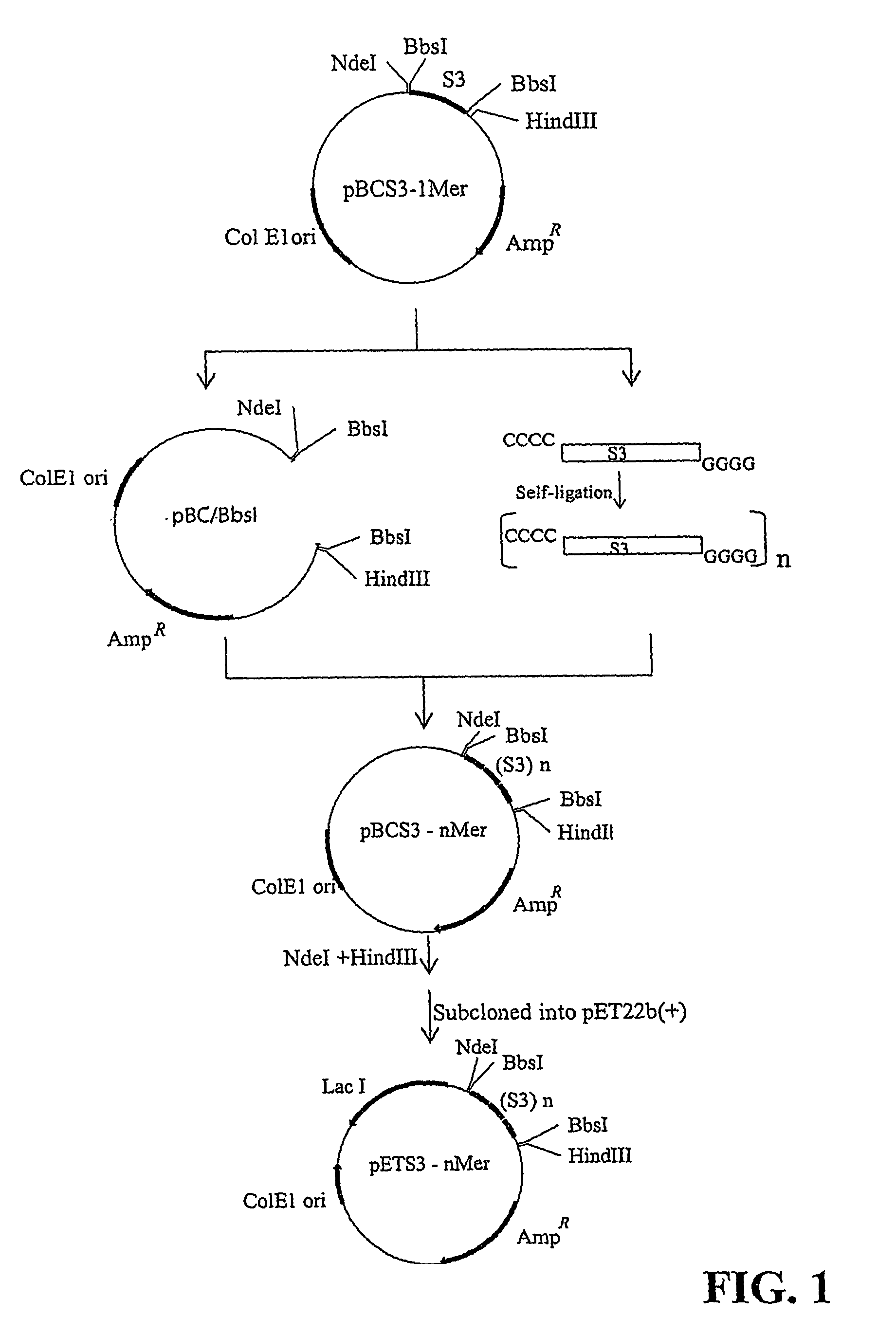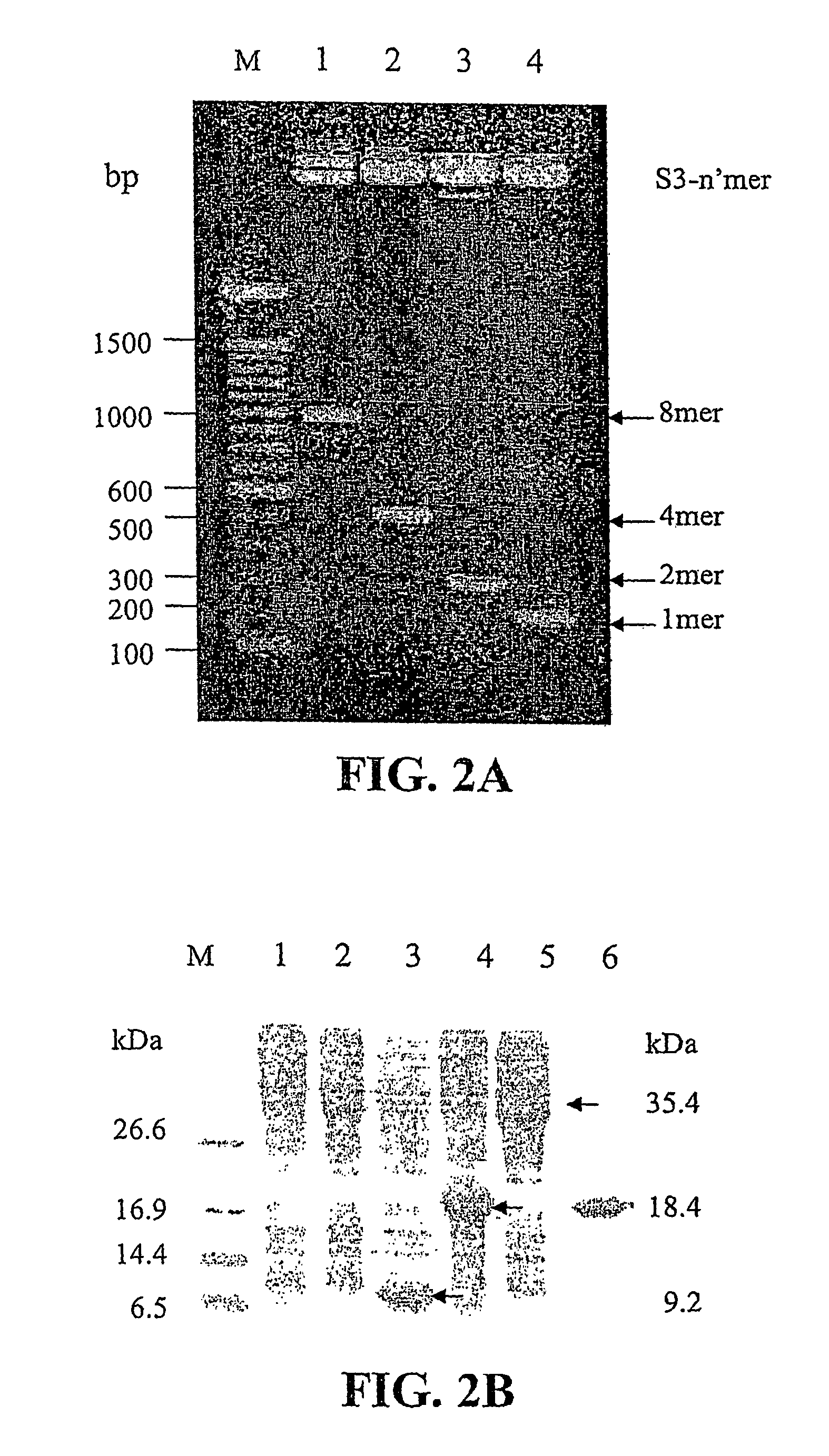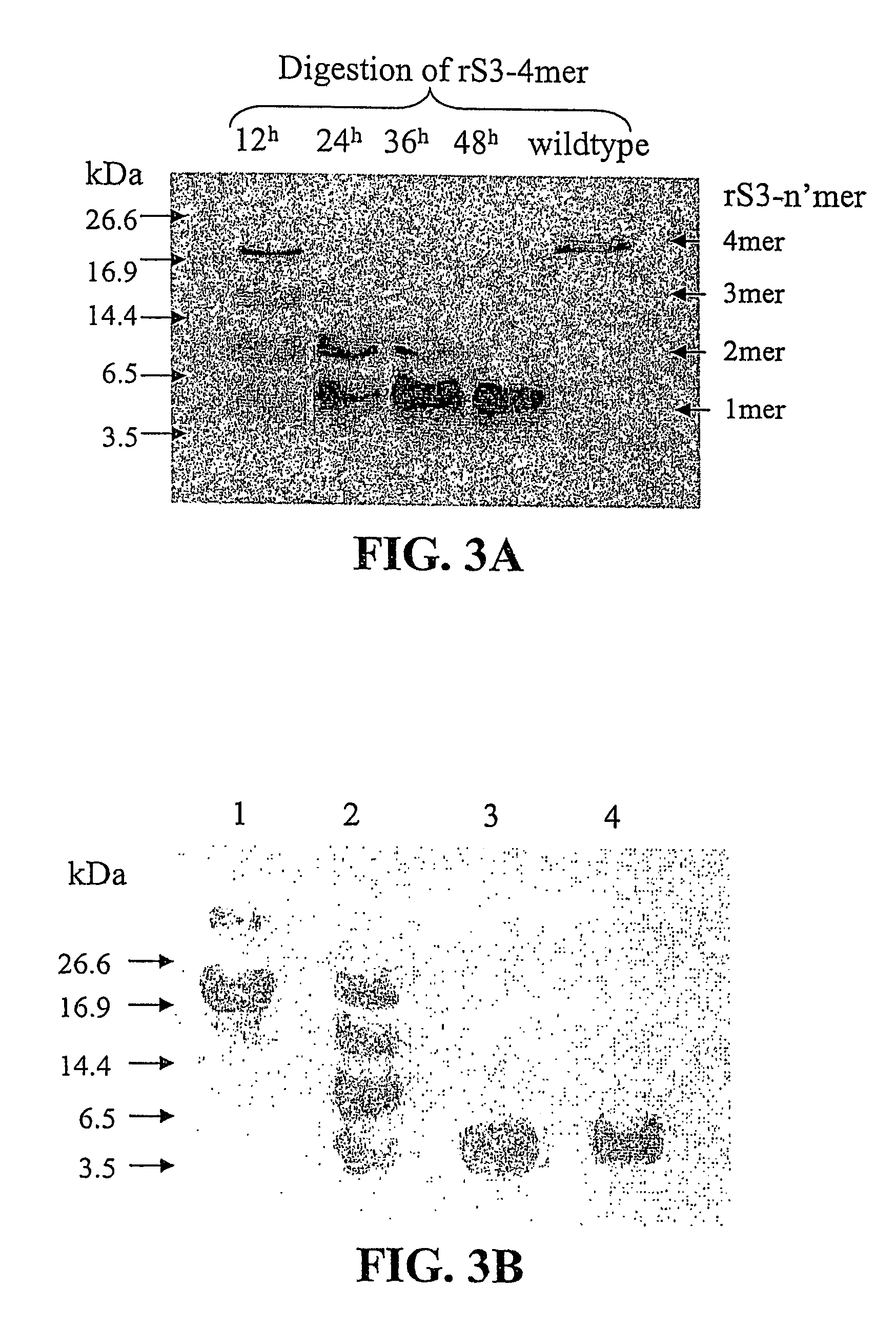Sushi peptide multimer
a technology of peptides and multimers, which is applied in the field of gramnegative bacterial infection and peptides, can solve the problems of affecting the clearance factor, the inability to efficiently express smaller peptides over a wide range of ph and ionic strength, and the difficulty of achieving the clearance factor
- Summary
- Abstract
- Description
- Claims
- Application Information
AI Technical Summary
Benefits of technology
Problems solved by technology
Method used
Image
Examples
examples
[0081]LPS from Escherichia coli 055:B5 was purchased from Sigma (St. Louis, Mo.). LAL kinetic-QCL kit was supplied by BioWhittaker (Walkersvile, Md.). Human TNF-α kit (OptEIA ELISA) was from Pharmingen (San Diego, Calif.). CellTiter 96 Aqueous One Solution Reagent for cytotoxicity assay was purchased from Promega (Madison, Wis.). Enzymes for DNA manipulation and polymerase reactions were purchased from NEB (Beverly, Mass.). DNA purification and extraction kits were from Qiagen (Chatsworth, Calif.). Pyrogen-free water for making buffers was from Baxter (Morton Grove, Ill.). Chemically synthesized S3 peptides were made commercially according to sequence information supplied by us.
[0082]rS3-4mer is a tetramer with tandem repeat of the S3 gene. An endotoxin removing affinity matrix was developed by using 1-ethyl-3-(3-dimethylaminopropyl) carbodiimide (EDC) as a coupling agent to link rS3-4mer to DADPA-immobilized agarose gel (Pierce, USA). The rationale for choosing DADPA-immobilized ag...
PUM
| Property | Measurement | Unit |
|---|---|---|
| pH | aaaaa | aaaaa |
| pH | aaaaa | aaaaa |
| pH | aaaaa | aaaaa |
Abstract
Description
Claims
Application Information
 Login to View More
Login to View More - R&D
- Intellectual Property
- Life Sciences
- Materials
- Tech Scout
- Unparalleled Data Quality
- Higher Quality Content
- 60% Fewer Hallucinations
Browse by: Latest US Patents, China's latest patents, Technical Efficacy Thesaurus, Application Domain, Technology Topic, Popular Technical Reports.
© 2025 PatSnap. All rights reserved.Legal|Privacy policy|Modern Slavery Act Transparency Statement|Sitemap|About US| Contact US: help@patsnap.com



